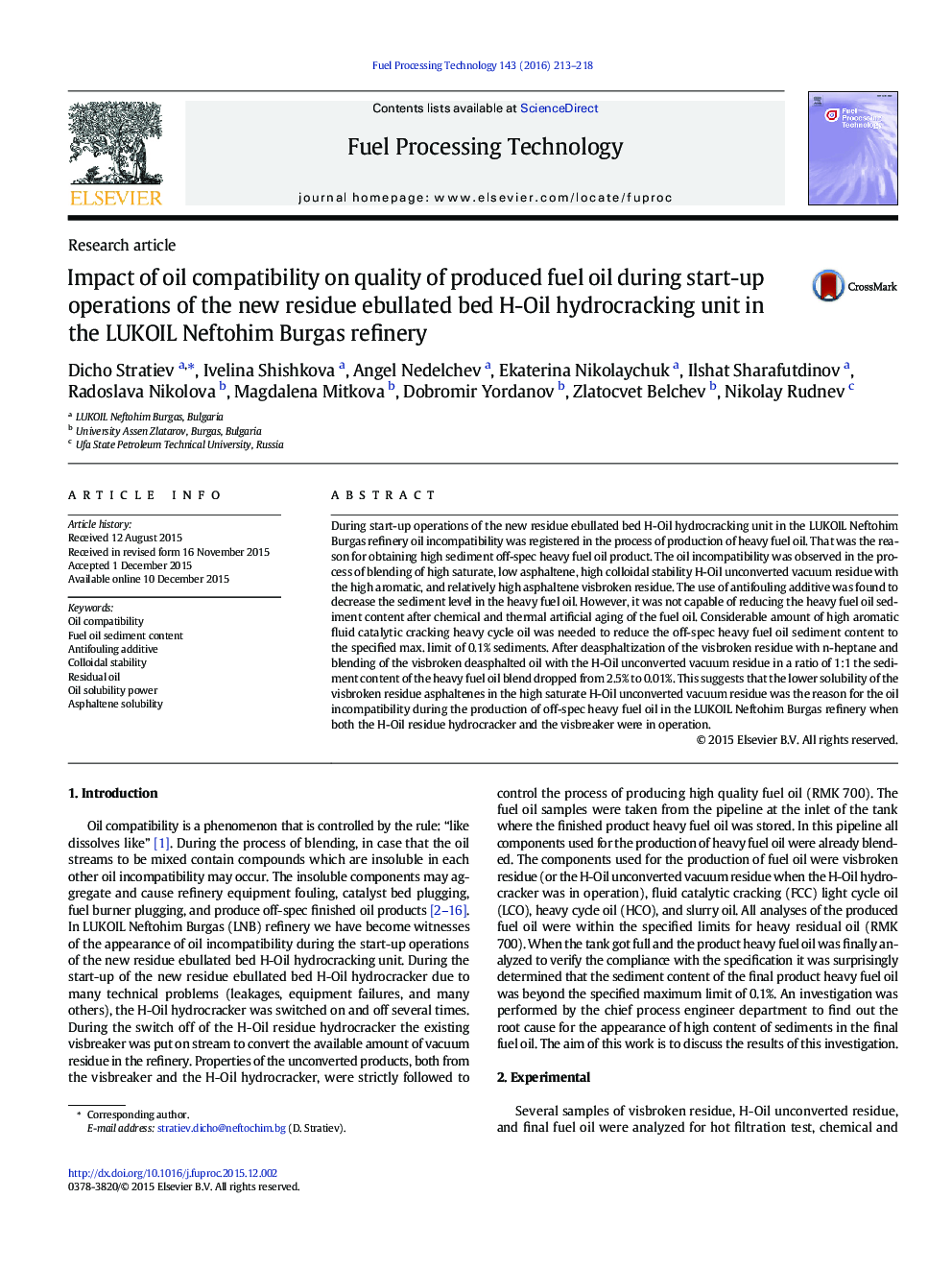| Article ID | Journal | Published Year | Pages | File Type |
|---|---|---|---|---|
| 209216 | Fuel Processing Technology | 2016 | 6 Pages |
•Oil compatibility controls the process of sedimentation during heavy fuel oil production.•The high saturate H-Oil residue is incompatible with the low saturate visbroken residue.•The antifouling additive may inhibit the process of sedimentation in residue processing.•The high aromatic FCC gas oils inhibit the process of sedimentation in residue processing.
During start-up operations of the new residue ebullated bed H-Oil hydrocracking unit in the LUKOIL Neftohim Burgas refinery oil incompatibility was registered in the process of production of heavy fuel oil. Тhat was the reason for obtaining high sediment off-spec heavy fuel oil product. The oil incompatibility was observed in the process of blending of high saturate, low asphaltene, high colloidal stability H-Oil unconverted vacuum residue with the high aromatic, and relatively high asphaltene visbroken residue. The use of antifouling additive was found to decrease the sediment level in the heavy fuel oil. However, it was not capable of reducing the heavy fuel oil sediment content after chemical and thermal artificial aging of the fuel oil. Considerable amount of high aromatic fluid catalytic cracking heavy cycle oil was needed to reduce the off-spec heavy fuel oil sediment content to the specified max. limit of 0.1% sediments. After deasphaltization of the visbroken residue with n-heptane and blending of the visbroken deasphalted oil with the H-Oil unconverted vacuum residue in a ratio of 1:1 the sediment content of the heavy fuel oil blend dropped from 2.5% to 0.01%. This suggests that the lower solubility of the visbroken residue asphaltenes in the high saturate H-Oil unconverted vacuum residue was the reason for the oil incompatibility during the production of off-spec heavy fuel oil in the LUKOIL Neftohim Burgas refinery when both the H-Oil residue hydrocracker and the visbreaker were in operation.
